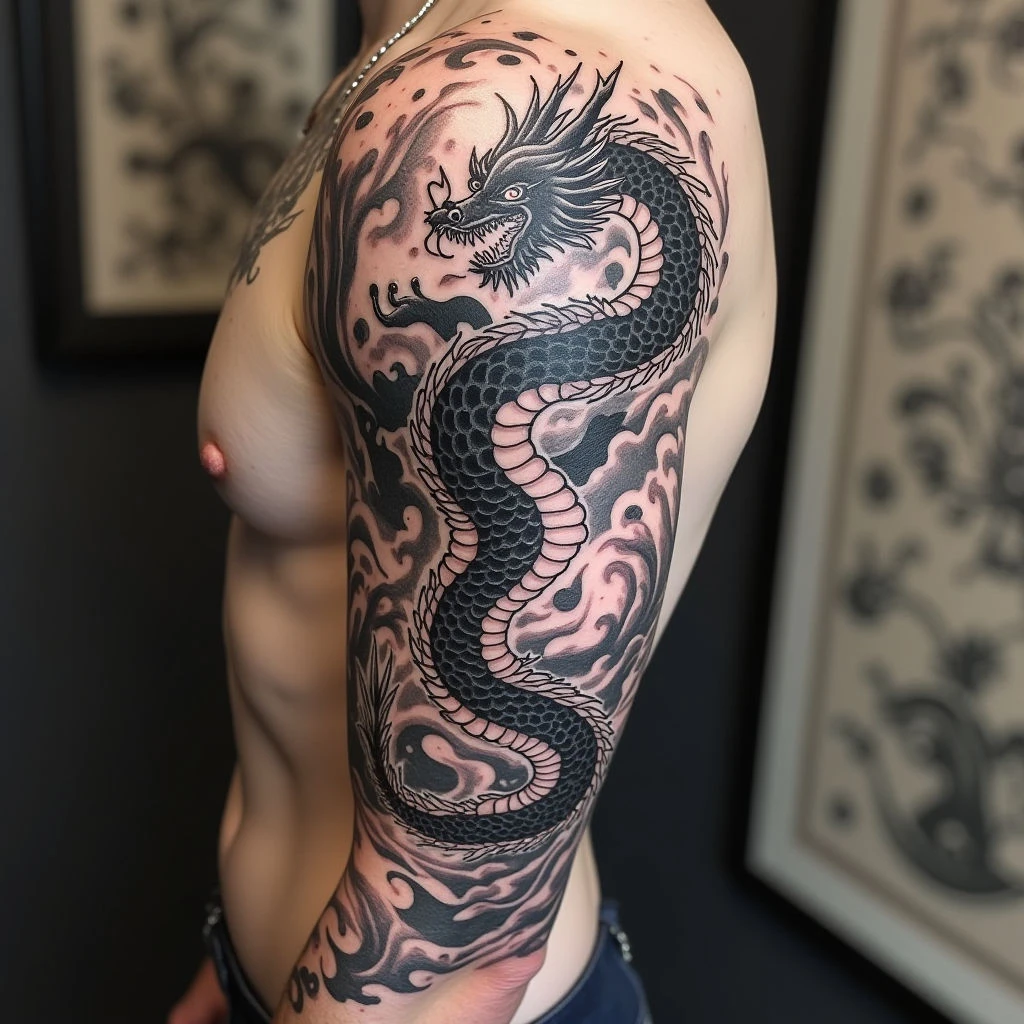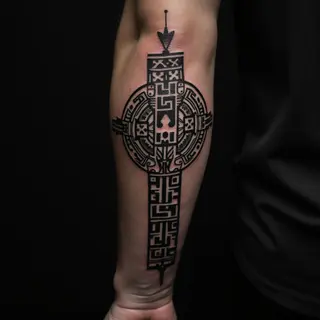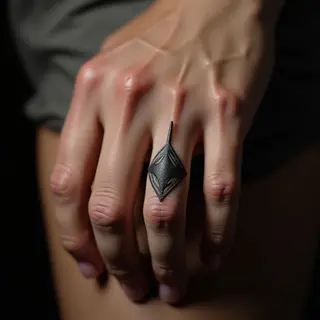Japanese Dragons: Symbols of Wisdom, Strength, and Good Fortune
Historical Significance
Dragons hold a prominent place in Shintoism and Buddhism, representing auspiciousness and divine power. Emperors were often associated with dragons, further solidifying their regal status.
Symbolic Meanings
- Power & Strength: Dragons represent raw strength and unwavering resolve. A dragon tattoo can signify overcoming challenges and achieving personal goals.
- Wisdom & Knowledge: The Ryū is a creature of deep understanding, symbolizing enlightenment and the pursuit of knowledge.
- Protection & Guardianship: As benevolent protectors, dragons ward off evil spirits and bring safety to those under their gaze.
- Good Fortune & Prosperity: Dragons are believed to attract wealth and abundance, making them popular choices for seeking prosperity.
Design Variations
Different dragon types carry unique meanings. The Seiryu (Azure Dragon) embodies spring and represents benevolence; the Byakko (White Tiger), though not a dragon, shares similar protective qualities. The number of claws can also signify regional origin - three claws are typically associated with Japan.
The Japanese Dragon Tattoo
The Japanese dragon tattoo is more than just ink on skin; it’s an embodiment of cultural heritage and personal aspiration.





















